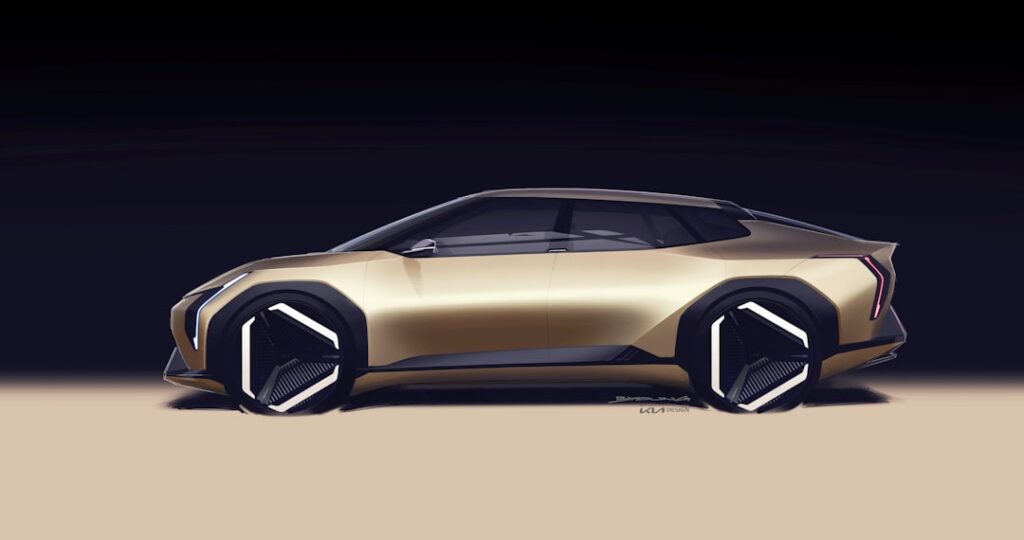As we move into 2025, the landscape of car ownership is undergoing significant transformation, influenced by technological advancements, economic shifts, and changing consumer preferences. The costs associated with owning a vehicle extend far beyond the initial purchase price, encompassing a myriad of expenses such as insurance, maintenance, fuel, and depreciation. Understanding these costs is crucial for prospective car owners who wish to make informed decisions in an increasingly complex automotive market.
In recent years, the conversation surrounding car ownership has evolved, with many individuals questioning the necessity of owning a vehicle at all. Factors such as urbanization, the rise of ride-sharing services, and advancements in public transportation have led to a reevaluation of traditional car ownership models. As we delve deeper into the intricacies of car ownership costs in 2025, it becomes evident that a comprehensive understanding of these expenses is essential for navigating the future of personal transportation.
Understanding the Shift in Car Ownership Trends
The shift in car ownership trends is largely driven by generational changes and technological innovations. Millennials and Generation Z, who are now entering the workforce and establishing their financial independence, exhibit different attitudes toward car ownership compared to previous generations. Many young adults prioritize experiences over possessions, leading to a decline in the desire for personal vehicles.
This trend is further exacerbated by the increasing availability of alternative transportation options such as ride-sharing platforms like Uber and Lyft, which provide convenient and cost-effective solutions for urban dwellers. Moreover, the COVID-19 pandemic has accelerated changes in mobility preferences. With remote work becoming more prevalent, many individuals find themselves commuting less frequently, reducing the necessity for a personal vehicle.
This shift has prompted a growing interest in subscription services and car-sharing models that offer flexibility without the long-term commitment associated with traditional ownership. As these trends continue to evolve, they will undoubtedly shape the future of car ownership and influence the associated costs.
Decoding the True Cost of Car Ownership

To fully grasp the financial implications of car ownership in 2025, it is essential to decode the various components that contribute to its overall cost. The initial purchase price is often the most visible expense; however, it represents only a fraction of the total cost of ownership. Depreciation is a significant factor that affects vehicle value over time, with new cars losing approximately 20% to 30% of their value within the first year alone.
This rapid depreciation can lead to substantial financial losses for owners who decide to sell or trade in their vehicles. In addition to depreciation, ongoing expenses such as insurance premiums, fuel costs, maintenance, and repairs must be considered. Insurance rates can vary widely based on factors such as location, driving history, and vehicle type.
Fuel costs are influenced by fluctuating gas prices and the fuel efficiency of the vehicle itself. Maintenance and repair expenses can also add up over time, particularly for older vehicles that may require more frequent servicing. By understanding these components, prospective car owners can better assess their financial commitments and make informed choices about their transportation needs.
Factors Affecting Car Ownership Costs in 2025
| Factors | Impact |
|---|---|
| Vehicle Type | High |
| Fuel Efficiency | Medium |
| Insurance Costs | High |
| Maintenance Costs | Medium |
| Depreciation | High |
Several factors will play a pivotal role in shaping car ownership costs in 2025. Economic conditions, including inflation rates and interest rates on auto loans, will directly impact consumers’ purchasing power and financing options. As inflation continues to rise, the cost of goods and services—including vehicles—will likely increase, making it more challenging for individuals to afford new cars.
Additionally, higher interest rates can lead to increased monthly payments for financed vehicles, further straining budgets. Technological advancements are also influencing car ownership costs. The integration of advanced safety features and infotainment systems in new vehicles can enhance driving experiences but may also contribute to higher purchase prices.
Furthermore, the emergence of electric vehicles (EVs) is reshaping the automotive landscape. While EVs often come with higher upfront costs compared to traditional gasoline-powered cars, they can offer long-term savings through lower fuel and maintenance expenses. Understanding these factors will be crucial for consumers as they navigate their options in an evolving market.
The Rise of Electric and Autonomous Vehicles: How They Impact Ownership Costs
The rise of electric vehicles (EVs) and autonomous vehicles (AVs) is one of the most significant developments in the automotive industry today. As governments worldwide implement stricter emissions regulations and consumers become more environmentally conscious, EV adoption is expected to surge in 2025 and beyond. While the initial purchase price of EVs can be higher than that of conventional vehicles, various incentives—such as tax credits and rebates—are available to offset these costs.
Additionally, EVs typically have lower operating costs due to reduced fuel expenses and fewer moving parts that require maintenance. Autonomous vehicles present another layer of complexity regarding ownership costs. As AV technology matures, it has the potential to revolutionize transportation by reducing accidents and improving traffic efficiency.
However, the transition to fully autonomous vehicles may also lead to changes in insurance models and liability considerations. For instance, if an AV is involved in an accident, determining fault may become more complicated than with traditional vehicles. This uncertainty could influence insurance premiums and overall ownership costs as consumers adapt to new paradigms in vehicle operation.
Strategies for Minimizing Car Ownership Costs

To navigate the complexities of car ownership costs effectively, consumers can adopt several strategies aimed at minimizing their financial burden. One approach is to conduct thorough research before purchasing a vehicle. Understanding factors such as depreciation rates, fuel efficiency ratings, and maintenance histories can help buyers make informed decisions that align with their budgets.
Additionally, considering used or certified pre-owned vehicles can provide significant savings while still offering reliable transportation. Another effective strategy involves exploring alternative financing options. Consumers should shop around for competitive interest rates from various lenders and consider credit unions or online lenders that may offer more favorable terms than traditional banks.
Furthermore, taking advantage of manufacturer incentives or seasonal sales events can lead to substantial savings on new vehicles. By being proactive and informed about their options, consumers can significantly reduce their overall car ownership costs.
The Future of Car Ownership: Predictions and Projections
Looking ahead to the future of car ownership beyond 2025 reveals a landscape characterized by continued evolution and innovation. As urbanization intensifies and cities become more congested, it is likely that shared mobility solutions will gain traction among consumers seeking convenience without the burdens of ownership. This shift could lead to a decline in personal vehicle ownership rates as more individuals opt for on-demand transportation services.
Moreover, advancements in technology will continue to shape consumer preferences and expectations regarding vehicle ownership. The integration of smart technologies into cars will enhance connectivity and convenience while also providing valuable data on driving habits and maintenance needs. As autonomous driving technology matures, it may pave the way for entirely new business models centered around mobility-as-a-service (MaaS), where consumers pay for access to transportation rather than owning a vehicle outright.
Navigating Car Ownership Costs in 2025
As we approach 2025, understanding car ownership costs becomes increasingly vital for consumers navigating an evolving automotive landscape. The interplay between economic factors, technological advancements, and shifting consumer preferences will shape the future of personal transportation in profound ways. By decoding the true costs associated with car ownership and adopting strategies to minimize expenses, individuals can make informed decisions that align with their financial goals and lifestyle needs.
In this dynamic environment, staying informed about trends such as electric vehicle adoption and autonomous driving technology will be essential for prospective car owners. As we look ahead, it is clear that the future of car ownership will be marked by innovation and change—requiring consumers to adapt their approaches to transportation in order to thrive amidst these developments.
FAQs
What factors contribute to the real cost of car ownership in 2025?
Factors that contribute to the real cost of car ownership in 2025 include the initial purchase price, fuel costs, insurance premiums, maintenance and repair expenses, depreciation, and taxes and fees.
How has the cost of car ownership changed in 2025 compared to previous years?
In 2025, the cost of car ownership may have increased due to factors such as rising fuel prices, advanced technology in vehicles leading to higher repair costs, and increased insurance premiums. However, advancements in electric and hybrid vehicles may have also led to potential savings in fuel and maintenance costs.
What are some tips for decoding the real cost of car ownership in 2025?
To decode the real cost of car ownership in 2025, it is important to consider all the expenses associated with owning a car, including fuel, insurance, maintenance, and depreciation. It is also important to research and compare different vehicle options, consider the potential impact of new technologies on costs, and factor in any potential incentives for eco-friendly vehicles.
How can advancements in technology impact the cost of car ownership in 2025?
Advancements in technology can impact the cost of car ownership in 2025 by potentially increasing repair and maintenance costs due to the complexity of new vehicle systems. However, technology can also lead to more fuel-efficient vehicles and advancements in safety features, potentially reducing long-term costs.
What are some potential future trends that could impact the cost of car ownership in 2025?
Potential future trends that could impact the cost of car ownership in 2025 include the widespread adoption of electric and autonomous vehicles, changes in government regulations and incentives, and advancements in vehicle connectivity and data usage. These trends could have varying effects on the overall cost of car ownership.



